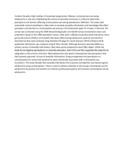| dc.contributor.author | Kinaro, JW | |
| dc.date.accessioned | 2015-09-22T08:54:14Z | |
| dc.date.available | 2015-09-22T08:54:14Z | |
| dc.date.issued | 2013 | |
| dc.identifier.citation | Health 2013 Vol. 5 No. 1 pp. 14-23 | en_US |
| dc.identifier.uri | http://www.cabdirect.org/abstracts/20133061806.html?resultNumber=2&q=au%3A%22Kinaro%2C+J.%22 | |
| dc.identifier.uri | http://hdl.handle.net/11295/91306 | |
| dc.description.abstract | Context: Despite a high number of unwanted pregnancies in Kenya, contraceptive use among adolescents is very low. Establishing the nature of sexuality discussions is critical to determine perceptions and barriers affecting contraceptive use among adolescents. Methods: The study used systematic random sampling to collect data to examine sexuality information and knowledge that affect perception and barriers on contraceptive use among 1119 adolescents aged 15-19 years in Nairobi. The survey was conducted using the 2009 Kenya Demographic and Health Survey enumeration areas and projections based on the 1999 population census. Data were collected using structured interviews, focus group discussions (FGDs) and in-depth interviews (IDIs) among adolescents, parents and teachers. Quantitative data were analyzed using Statistical Package for Social Sciences (SPSS) software while qualitative information was analyzed using iT Atlas. Results: Although teachers were identified as a primary source of sexuality information, they were poorly prepared to teach the subject. While the study found negative perceptions on sexuality education, most FGDs and IDIs supported the need for its integration in the school curriculum. Most adolescents who used contraceptives had perceptions that their parents approved. Source of sexuality information, living arrangement and perceptions on contraceptives for unmarried adolescents were statistically associated with contraceptive use. Conclusion: The study showed that sexuality information from parents and teachers was biased against adolescents using contraceptives. There is need to address attitudes in discussing contraceptive use for adolescents by parents and teachers to enhance positive perceptions and increase contraceptive use by adolescents. | en_US |
| dc.language.iso | en | en_US |
| dc.publisher | University of Nairobi | en_US |
| dc.title | Why adults and teachers information about sexual behavior and its consequences does not prevent unplanned pregnancies among adolescents in Nairobi, Kenya. | en_US |
| dc.type | Article | en_US |
| dc.type.material | en | en_US |

